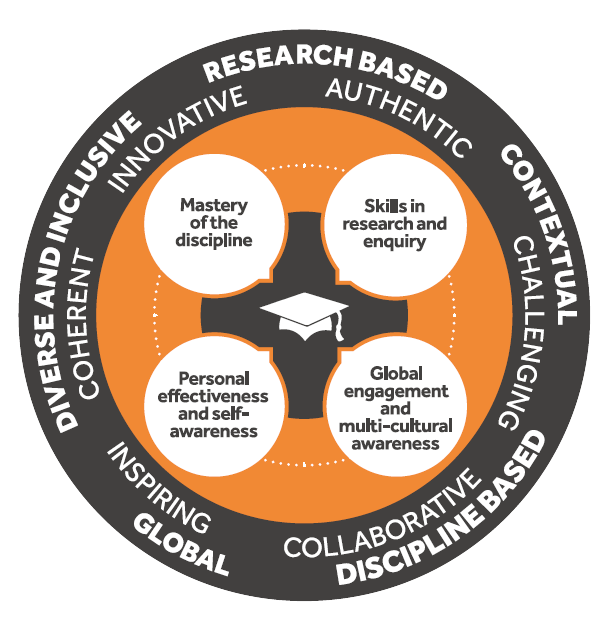Pedagogical Principles
The University of Reading curriculum is carefully designed to ensure that teaching, learning and assessment are aligned to the learning outcomes of programmes and of associated modules. It is informed by an engagement with up-to-date research and scholarship in teaching and learning. Opportunities are offered by use of technology to broaden, diversify and support the design of the curriculum are considered.
The curriculum is designed in collaboration with students and other stakeholders and is mindful of the need to prepare students for life beyond university. Programme Directors are trained and supported to lead their teams to effectively deliver cohesive programmes.
The curriculum has momentum. It is appropriately and progressively challenging from the outset; building on prior learning and attainment; maximising student potential and attainment. Skill development is mapped across programmes. The curriculum progressively builds students' confidence in transitioning to autonomous learning.
Curriculum design is informed by pedagogies appropriate to the discipline. These are articulated and shared with students.
Programmes are planned to ensure that students are well prepared for and actively engaged in their learning and are designed to make maximum use of learning hours and to encourage and enable careful planning of independent study time. Preparedness and careful planning of out-of-class learning increasingly means that time in the classroom can be spent on discussion, problem solving, application, and experiential activities.
The curriculum is delivered using inspiring approaches to teaching and learning that are innovative and effectively incorporate evolving technology enhanced learning methods, where appropriate, to ensure access to the best learning environment possible.
Students are part of a community of learners; their programme provides them with opportunities to learn collaboratively as well as individually.

Pedagogical Principles continued
Research forms an integral part of student learning, including the development of their skills in engaging in their own research and disseminating this in forms appropriate to their audience. All programmes work progressively towards enabling students to undertake a substantial piece of independent research.
The curriculum is diverse and inclusive. It takes proactive and anticipatory account of the varied student body, including, for example, educational, cultural and social backgrounds and experiences, as well as the presence of any physical or sensory impairment and their mental well-being. It anticipates the challenges and barriers for different students and addresses these needs in the core curriculum, promoting a holistic approach to meeting students' entitlements. It evolves with the profile of students.
The curriculum includes opportunities for experiential learning and real world engagement. Not only are concepts, ideas and theories related to the current context to understand their applicability and use, all programmes provide the opportunity for students to learn within a workplace, through a placement and/or a work based learning activities.
Assessment is for learning. It is carefully planned across a programme. It contributes directly to learning and skill development; it is authentic, varied and proportionate. There is an appropriate balance between formative and summative assessment. Where possible, students are provided with some choice in assessment methods. Feedback on assessment feeds forward; it is regular, accessible, thorough and timely.
